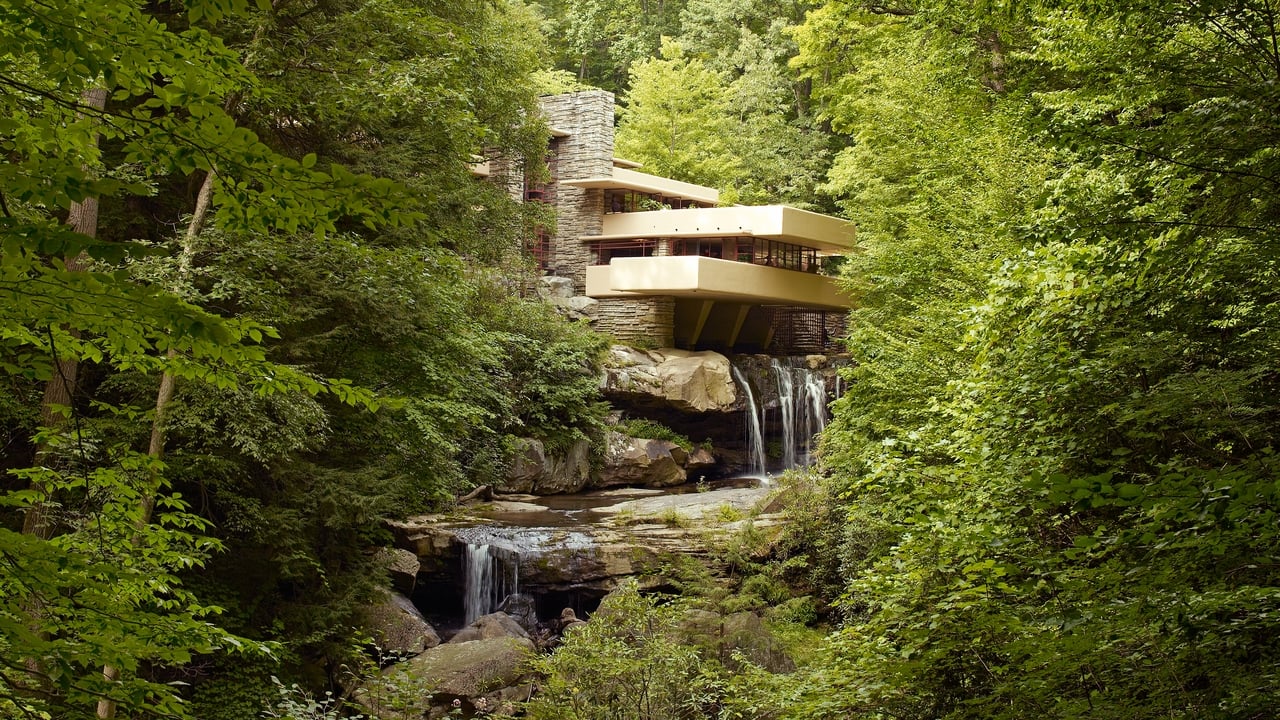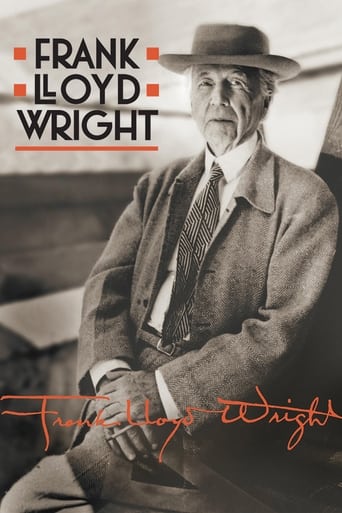

Your blood may run cold, but you now find yourself pinioned to the story.
... View MoreA lot of perfectly good film show their cards early, establish a unique premise and let the audience explore a topic at a leisurely pace, without much in terms of surprise. this film is not one of those films.
... View MoreIt’s fine. It's literally the definition of a fine movie. You’ve seen it before, you know every beat and outcome before the characters even do. Only question is how much escapism you’re looking for.
... View MoreExactly the movie you think it is, but not the movie you want it to be.
... View MoreAnd, when speaking about America's most-beloved/most-hated architects of them all - Does one properly refer to this man as being Mr. Frank Lloyd Wright, or should he really be called Mr. Frank Lloyd Wrong? Needless to say - There can be no doubt that Frank Lloyd Wright (who was/is probably the most celebrated and misjudged architects ever) was destined to redesign the entire world, but, for some unforeseen reasons, this towering vision of his was simply never realized.Born in Wisconsin in 1867 - I think it's really very surprising to note that Wright's most productive years in his field of work didn't come around until he had reached the age of 80 (!!).Throughout his 70-year career as one very ambitious, strong-willed and arrogant architect, Wright not only designed private homes and office towers, but he's also credited with the design of churches, schools, hotels and, yes, even gas stations and furniture, as well.Even though this 2.5-hour documentary (directed by Ken Burns) had its fair share of notable merits and strengths to its advantage, it also racked up a few demerit points for itself by (for one thing) placing way too much emphasis on Wright's very turbulent personal life.In 1959, Frank Lloyd Wright died at the age of 91.
... View MoreThis is one of my favorite shows, movie or documentary; I've watched it many times. It's very well done, always interesting, well edited, well written. I've suggested it to many people to watch. The opening sequence with the survey of some of Wright's most famous buildings along with dramatic Beethoven music (5th Piano Concerto "Emperor") is spectacular. The photography of his buildings is often beautifully and lovingly done.Some commentators were disappointed that there were not more buildings shown or that there was not more technical architectural discussion. I agree, but that wouldn't have been practical, and probably not so interesting to the general public. For instance, there really wasn't much discussion of "cantilever", which is what is holding up his most famous building, Falling Water. It would have been impossible to show all of the 700+ buildings he designed. Survey and technical information about Wright are much more available on the Internet now than in 1998 when the show came out. There are free online courses that cover these topics in detail.This show is about Wright the man. His history, the people and events that shaped his life and work, his ideas, along with his greatest works. His life was dramatic enough to provide an interesting story. One thing that stood out for me: when the stock market crashed in 1929, Wright was 62 years old. People didn't live so long in those days and his career seemed over. He was out of money and couldn't get a commission to build, and the economy had tanked anyway. This comes at the end of the first half of the show, and the commentator says somewhat profoundly: his greatest achievements were yet to come.Also fascinating was how his 3rd wife influenced him at this stage of his life, and how she moved his career along.Edward Herrmann does a very good job as narrator. (He died last year in 2014.) More than just reading a script, his voice is thoughtful and responsive to the words, as he's digested them and is reacting personally.Philip Johnson, eminent architect, is the main person interviewed. Interestingly, Johnson talks about his love-hate relationship with Wright, who he knew personally and by whom he was influenced greatly.Overall, the show is beautiful, breathtaking, dramatic, informative and at times shocking. Well worth watching by anyone.
... View MoreThis documentary is useful to neophytes, and it will get you up to speed on the general shape of Wright's episodic life, career and accomplishments. Its on-screen experts are on the silly side. Meryl Secrest strays into self-parody as she delivers her glib stories with an over the top poseur accent originating from parts unknown. Bruce Brooks Pfeiffer looks like a pale, red-eyed cadaver. Brendan Gill overstates half his anecdotes until any reasonable person begins rolling their eyes. As with any career this long, many Wright stories are truncated or left out. The speedy failure of Midway Gardens (via bad financing) is pushed off screen by the tragedy at Taliesin. A suitable coda for this production would have been to flash the images of all the architects Wright influenced or trained directly (Bart Prince, Bruce Goff, Schindler, Neutra, John Lautner, Paolo Soleri, too many too name...).Ken Russell "civil-wars" another topic. And the treatment is now a tepid, dull, formulaic, outdated way to encounter any material.
... View MoreFrank Lloyd Wright is the most innovative and influential architect in the 20th century. He shaped the way we think about buildings today, and put architecture at a different level of thinking. Buildings look simple in design but modern in method of the art of architecture. Even if you are an architect or not, you will enjoy this documentary.
... View More